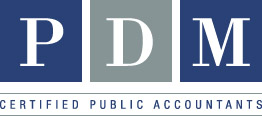As we all know, a big tax reform bill is on the table, with potentially big implications for everyone. Regardless of whether or not this bill will ultimately pass, we do know some important steps to take to prepare for an uncertain environment. In preparation for possible changes, many of the normal tax planning ideas for the end of the year still apply.
Accelerate Deductions and Defer Income
If the bill passes, many businesses may see a big reduction in tax rates between 2017 and 2018, with the caveat that some deductions that have been available might be going away. That means in many cases it makes sense to accelerate any available deductions into 2017, and to defer some income into 2018. That way you get the maximum tax benefit of deductions that are definitely still available in 2017, with a potentially lower tax rate from money deferred into 2018.
Prepare for Itemized Deductions That May Go Away
In the event that itemized deductions will no longer be available, it’s important to take advantage of deductions that you can still use now. Utilize the state deduction by making estimates of what you will owe next year and pay it in December.
Charitable deductions may also disappear, so this is the perfect time to make all your charitable donations now. Remember to document everything you give—the IRS will require proof.
If you have a tax shortfall, consider increasing your withholding.
Retirement Accounts
Certain rules around retirement accounts could potentially change as well. It’s important to leverage your retirement accounts to the best of your ability by year’s end. For example, if you want to recharacterize a Roth conversion made in 2017, you’ll want to do it now. Ordinarily you would have until October of the following year to recharacterize a Roth conversion, but the proposed rules could require it be made before the end of the year.
Many Other Areas Will Be Affected
Many other areas could be affected if the bill passes, including estate planning, the exclusion of gain requirement when selling a property, s-corporations, partnerships and sole proprietorships, and payments for student loan interests. If you have specific and urgent concerns, it’s best to consult with your tax professional.
Confused About the Potential New Tax Reform?
Every tax situation is unique. When navigating strategies to prepare for possible tax reform for your maximum benefit, specific steps are recommended. PDM’s tax experts can help advise you on the best course of action. Contact us; with our years of technical experience, advanced training, and cutting edge technology, we are your financial partner.


